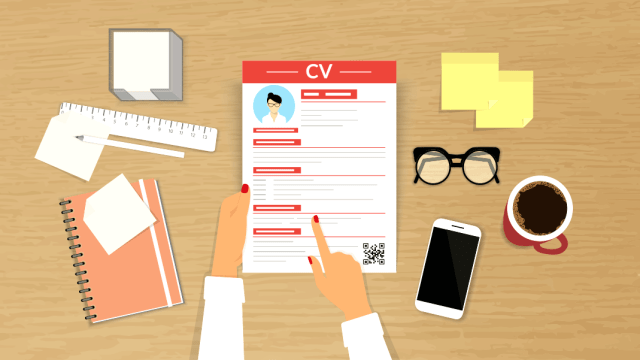Not only is your resume essentially your career summed up on one page, it’s also your ticket to your next awesome opportunity. So, yeah, it’s kind of a big deal. With that in mind, it’s a good idea to have an extra set of eyes look over it to make sure it’s in tip-top shape before you use it for anything.
This post originally appeared on The Muse.
The question then isn’t so much should you have someone look it over, but what should the person actually be looking for? Typos, definitely, but that’s not all. Here are three other questions to ask your resume reviewer to make sure you’re getting the best feedback possible.
1. What Kind of Position Does it Look Like I’m Applying For?
When your resume finally gets in front of a hiring manager, you never want his or her first question to be, “Why exactly did this person apply?” You might be able to see how all your disparate experiences connect to make you an awesome candidate for the job, but that’s not always obvious on paper.
Having your reviewer take a stab at guessing what kind of position you might be going for gives you a pretty good idea what types of roles you look qualified for. If the answers you get are too off the mark for comfort, consider tailoring your resume more to the position.
2. At What Point Did You Start Skimming?
You know recruiters don’t spend much more than six seconds on a resume. Of course, when you’ve asked a friend to look over your materials, he or she’ll spend a bit more time. That said, there’ll still be a point when your friend will get the urge to skim.
Don’t be offended. In fact, be grateful. If you can pinpoint the spot when it stops being interesting, that’s exceptionally good information to have when it comes to editing. Consider rearranging your sections a bit to be more engaging or making sure your bullets impress as much as possible.
3. Do You Have Any Questions After Reading My Resume?
This is similar to the first question, but instead of focusing on the big picture, here you’re dealing with the details. Ideally, your resume checks off a bunch of boxes. The opposite of that would be to generate a bunch of questions.
That’s not to say it shouldn’t generate any. They just need to be the right kind. If they’re more along the lines of “Tell me more”, that’s fine. The problematic ones imply confusion. If your reader can’t understand what you’re trying to say or is wondering why something is included, consider it a red flag for editing.
You might think the next step sitting down and revising the whole thing. But actually, the next step is writing a thank you note for your lovely resume-reviewing buddy. Then, it’s off to do edits. Good luck!
3 Questions to Ask a Friend Editing Your Resume Besides “Are There Any Typos?” [The Muse]
Image by Julia Tim (Shutterstock).

Comments